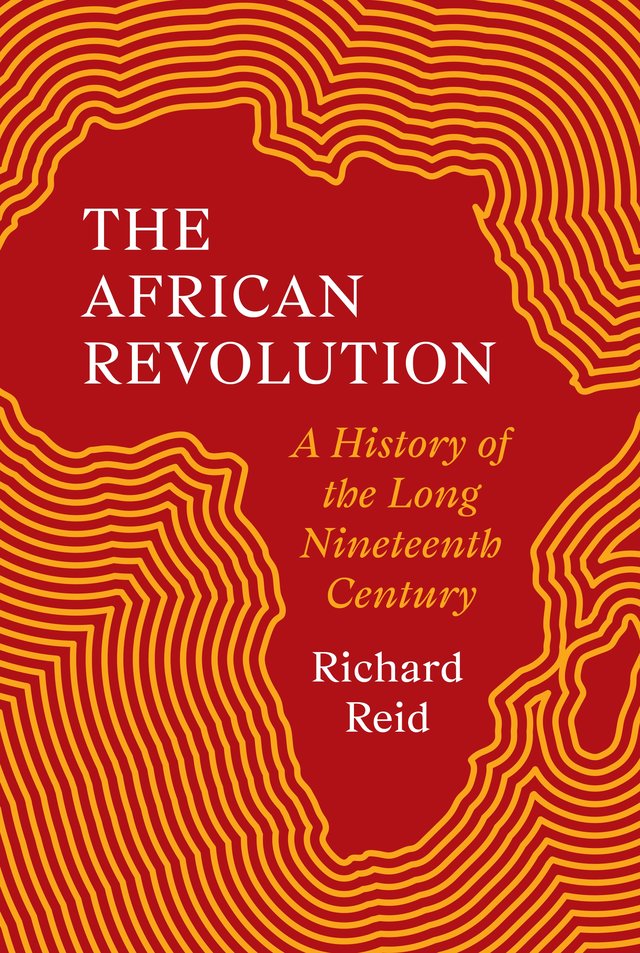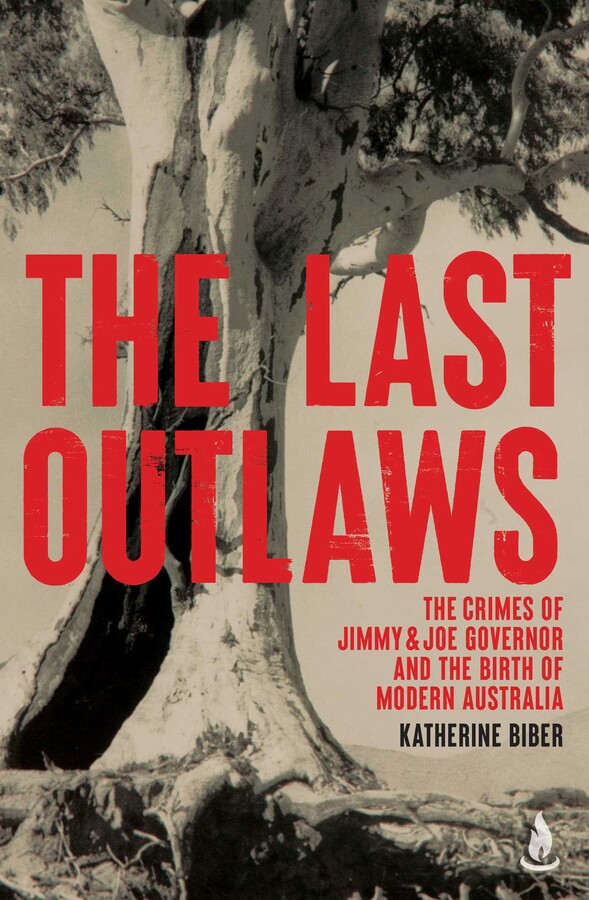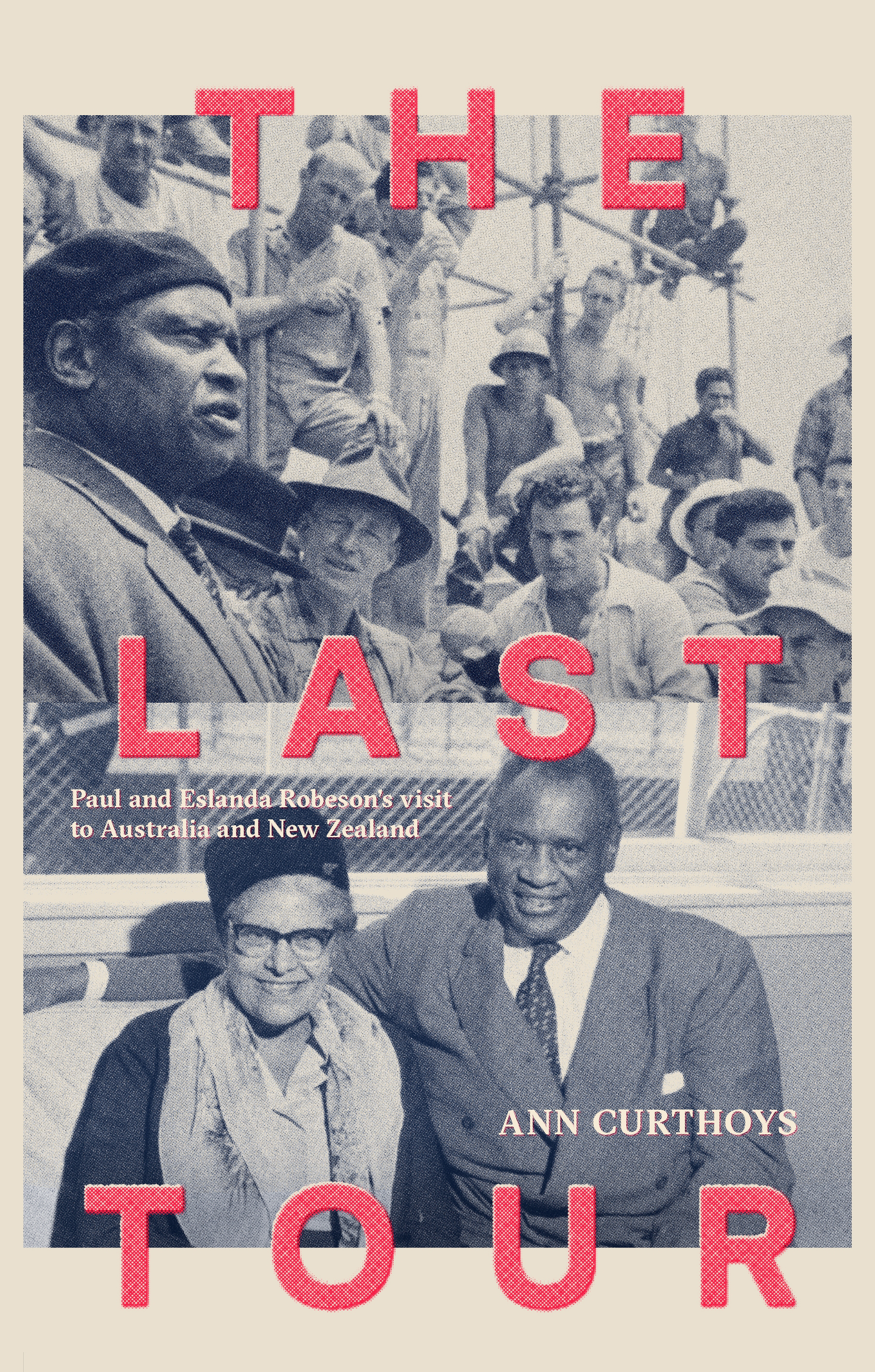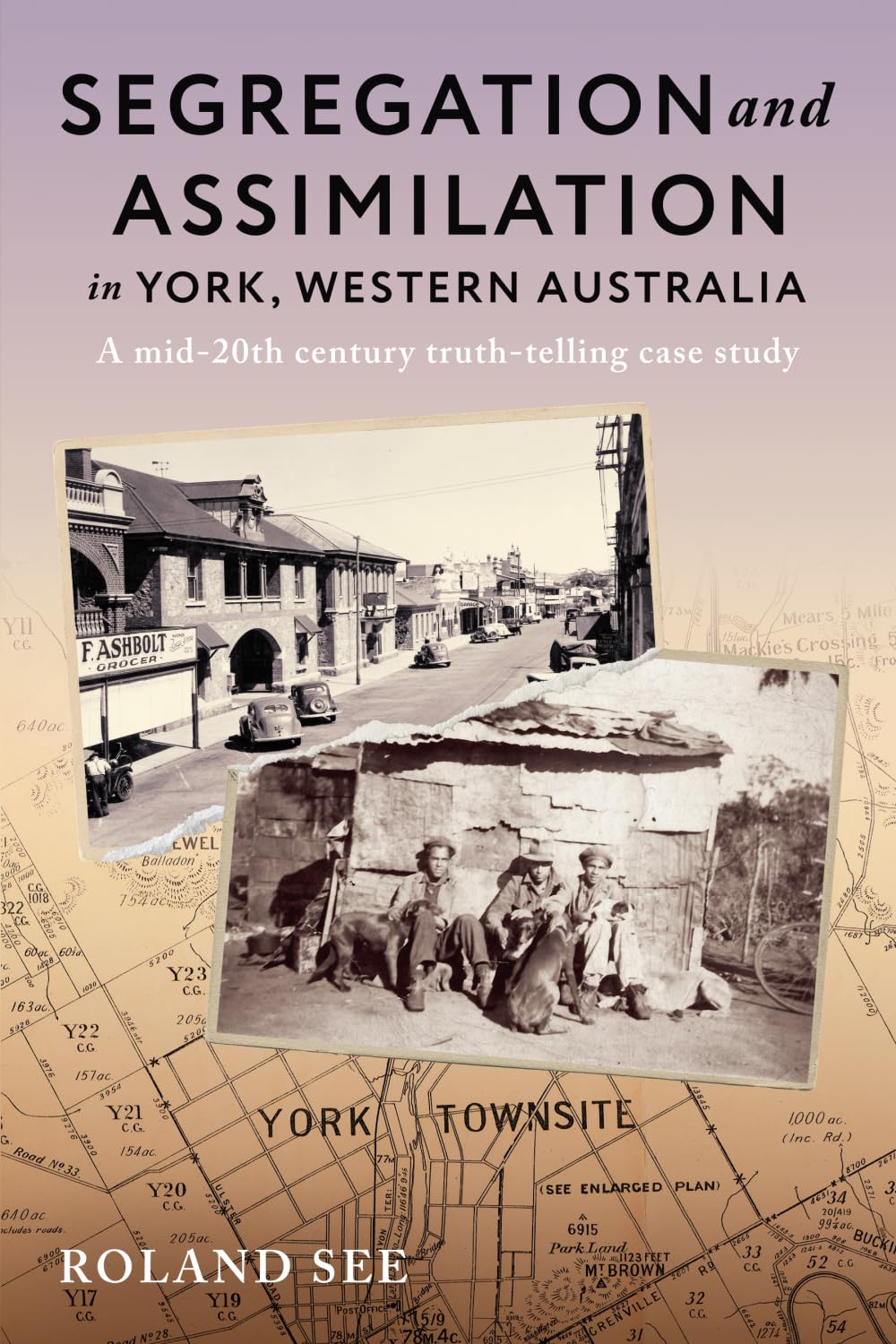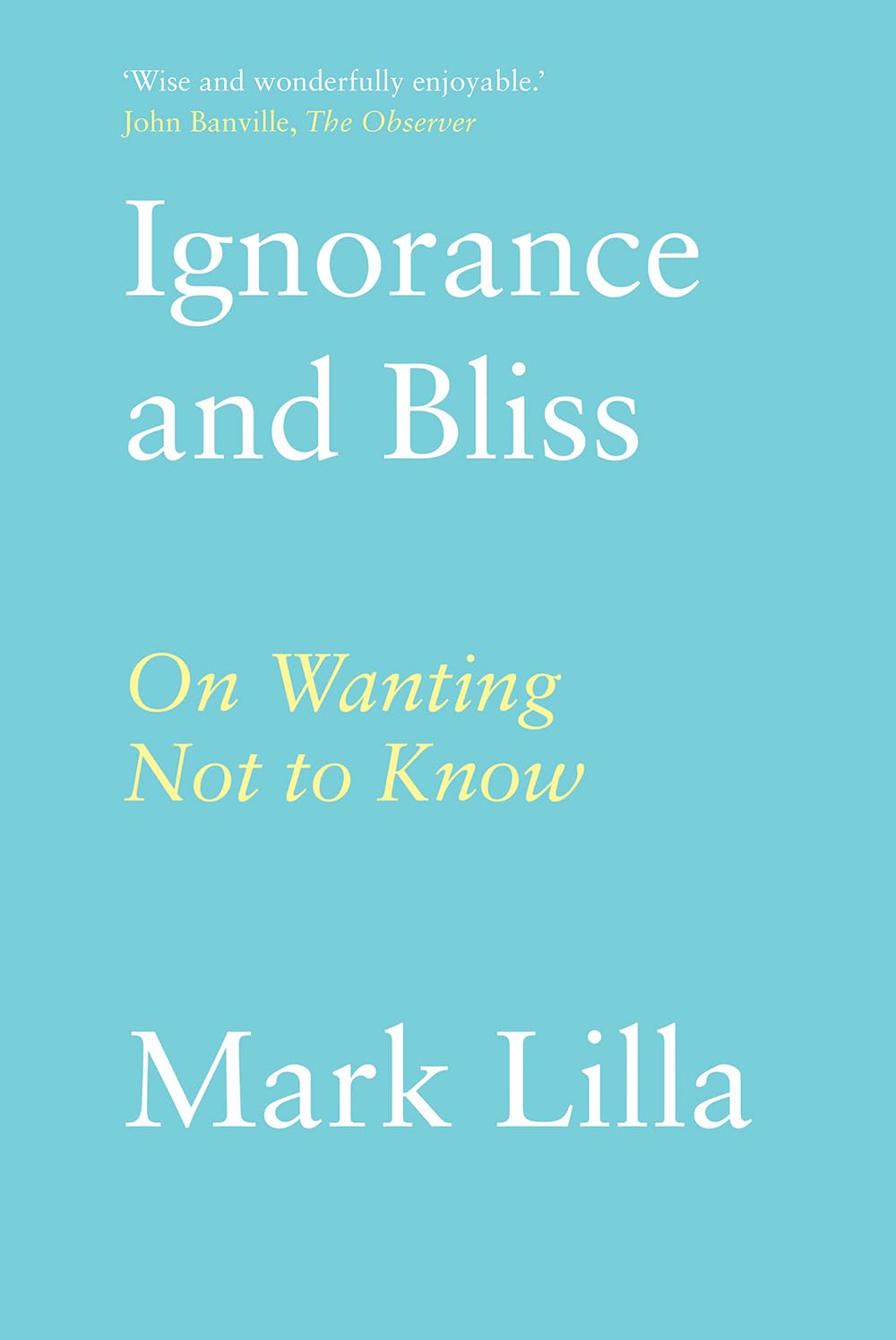Non Fiction
The African Revolution: A history of the long nineteenth century by Richard Reid
Richard Reid’s tour de force begins with the story of a single road that ‘ran from the Indian Ocean coast, ascending the lightly wooded, elevated plateau of central-east Africa, through the small but perfectly positioned chiefdom of Unyanyembe, and then onward to the west until it reached Lake Tanganyika’.
... (read more)The Last Outlaws: The crimes of Jimmy and Joe Governor and the birth of modern Australia by Katherine Biber
The fence post was wrapped in old newspaper and kept in the shed. It was all that Aunty Loretta Parsley, Jimmy Governor’s great-granddaughter, had left to touch of his life. ‘His hands touching that,’ she told Katherine Biber, ‘that’s why I asked you to open it. Because you need to connect with this story.’ Overwhelmed, Biber felt the ‘immense responsibility’ entrusted to her.
... (read more)The Last Tour: Paul and Eslanda Robeson’s visit to Australia and New Zealand by Ann Curthoys
Australians and New Zealanders loved Paul Robeson. Socialists, peace activists, and trade unionists held him up as their champion, the face of defiance amid Cold War harassment. Conservative theatre critics swooned at his golden bass baritone. Māori rugby players called him ‘brother’. Eastern European migrants wept to his song about the Warsaw Ghetto. Even an FBI informant could not deny he was a ‘great and superb artist’.
... (read more)Values in Cities: Urban heritage in twentieth-century Australia by James Lesh
In a country where property and real estate are central to the national psyche, it is fair to say that, even by Australian standards, we are having a moment. From the Great Australian Dream to the widespread recreational pursuit of watching The Block, real estate has become the nation’s article of faith. Meanwhile, a confluence of factors has seen housing become the hottest political issue in the country. Far from the dream, we have seemingly arrived at the worst of all possible worlds, where housing is too expensive to buy, too expensive to rent, and too expensive to build. Those without a leveraged portfolio of their own are rightly asking how we got into this mess.
... (read more)Belgium’s history with what is now the Democratic Republic of Congo is one of brutality and exploitation. In 1885, Leopold II, King of the Belgians from 1865 to 1909, became the sole owner of what was then called the Congo Free State. The story of how one of Africa’s largest countries, roughly the size of Western Europe, became privately owned – that is, not owned by the Belgian state but by its people’s king – is one of complex deceit, subterfuge, greed and mania. Leopold was responsible for the killing and mutilation of millions of people – some estimate up to ten million – in Central Africa. Animals were victims too. ‘At the start of the nineteenth century there were up to twenty-six million elephants in Africa. That number currently sits between four and five hundred thousand.’ In nine years, the tusks of 94,000 elephants were shipped into Antwerp alone. Eventually, forced to relinquish to Belgium his so-called Congo Free State, Leopold destroyed all incriminating documents, writing to an aide, ‘I will give them my Congo, but they have no right to know what I did there.’ The Palace furnaces were said to burn for eight days.
... (read more)Contaminated Country: Nuclear colonialism and Aboriginal resistance in Australia by Jessica Urwin
The Coalition was keen to spruik a nuclear future in Australia’s most recent federal election campaign. Conspicuous in its absence was a reckoning with Australia’s nuclear past. In Contaminated Country: Nuclear colonialism and Aboriginal resistance in Australia, environmental historian Jessica Urwin rightly puts that ugly legacy back in our minds.
... (read more)Segregation and Assimilation in York, Western Australia: A mid-twentieth century truth-telling case study by Roland See
Many Australians are unaware of the extent and severity of formalised racial segregation in the country prior to the 1967 referendum. In this meticulously researched study, Roland See examines the evolution of segregation and assimilation practices in the Western Australian wheatbelt town of York between 1924 – when the town’s Aboriginal reserve was first gazetted – and 1974, the year it was formally disestablished. Unlike in South Africa, where apartheid policies were highly centralised, in Western Australia racial segregation was often initiated and enforced at the municipal level. The state’s Aborigines Act, first enacted in 1905 and amended several times in the following decades, provided local governments with broad authority to create ‘native reserves’ and whites-only areas, enforce curfews, and regulate Indigenous people’s access to public amenities and services. Consequently, municipal councillors were particularly sensitive to the prejudices of their white electors. As See points out, although it was state legislation that enabled racial segregation and persecution of Aboriginal communities, ‘the local position was often the deciding factor in the implementation of such provisions and inhumane injustices’.
... (read more)Vietdamned: How the world’s greatest minds put America on trial by Clive Webb
By 1967, the United States was deeply mired in the war in Vietnam. In the immediate aftermath of World War II and until 1954, the Americans had supported French attempts to hold on to their colonial possessions in Indochina. When that failed, they opposed the creation of the Democratic Republic of Vietnam, led by the nationalist and communist Ho Chi Minh in the north of the country, and supported the brutal corrupt regimes of Ngo Dinh Diem and subsequent leaders in the south. The United States subscribed to the so-called domino theory that allowing communism to flourish in one Southeast Asian country would inevitably lead adjacent nations to ‘fall over’ into communism.
... (read more)While reading Notes to John I wondered about the words commonly associated with Joan Didion’s style – verve, discipline, precision, breathtaking diction (she is described as capturing the American 1960s and 1970s like no other writer). Notes to John, a posthumous publication of 150 pages made up of notes Didion made following a series of therapy sessions with her psychiatrist, contains clarity and acerbic wit in places, but in general is made up of writing that is dull, repetitive, and achingly private. Didion, who died in 2021, appears to acquiesce to her psychiatrist, Roger McKinnon. His interpretations of her life are often presented as clichéd banalities and Didion tussles linguistically with him without her usual cutting analysis and humour. It is as if in these notes she has given herself over to the supposedly greater power of psychiatric knowledge and in the process become less sagacious. The sessions cover grief, confusion, the indominable wish to understand more about oneself, and how to manage family traumas. But does the writing add anything to Didion’s body of work? I think not.
... (read more)
Every now and then, a truly profound book appears on a profoundly important subject. Mark Lilla’s Ignorance and Bliss is one such book.

